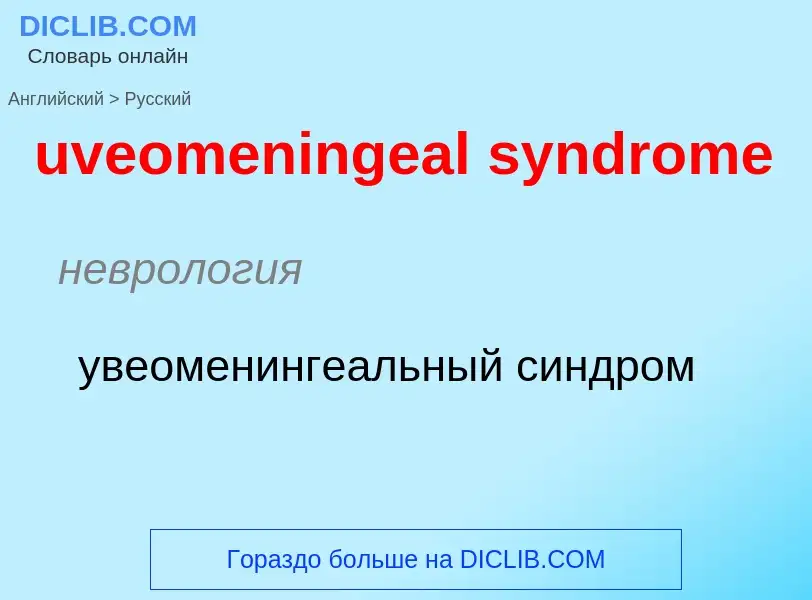Vertaling en analyse van woorden door kunstmatige intelligentie ChatGPT
Op deze pagina kunt u een gedetailleerde analyse krijgen van een woord of zin, geproduceerd met behulp van de beste kunstmatige intelligentietechnologie tot nu toe:
- hoe het woord wordt gebruikt
- gebruiksfrequentie
- het wordt vaker gebruikt in mondelinge of schriftelijke toespraken
- opties voor woordvertaling
- Gebruiksvoorbeelden (meerdere zinnen met vertaling)
- etymologie
uveomeningeal syndrome - vertaling naar russisch
неврология
увеоменингеальный синдром
медицина
гипофизарный евнухоидизм
адипозогенитальная дистрофия
гипофизарное ожирение
медицина
церебро-окуло-фациоскелетный синдром
Definitie
Wikipedia

Reye syndrome is a rapidly worsening brain disease. Symptoms of Reye syndrome may include vomiting, personality changes, confusion, seizures, and loss of consciousness. While liver toxicity typically occurs in the syndrome, jaundice usually does not. Death occurs in 20–40% of those affected with Reye syndrome, and about a third of those who survive are left with a significant degree of brain damage.
The cause of Reye syndrome is unknown. It usually begins shortly after recovery from a viral infection, such as influenza or chickenpox. About 90% of cases in children are associated with aspirin (salicylate) use. Inborn errors of metabolism are also a risk factor. The syndrome is associated with changes on blood tests such as a high blood ammonia level, low blood sugar level, and prolonged prothrombin time. Often, the liver is enlarged in the syndrome.
Prevention is typically by avoiding the use of aspirin in children. When aspirin was withdrawn for use in children in the US and UK in the 1980s, a decrease of more than 90% in rates of Reye syndrome was seen. Early diagnosis of the syndrome improves outcomes. Treatment is supportive; mannitol may be used to help with the brain swelling.
The first detailed description of Reye syndrome was in 1963 by Australian pathologist Douglas Reye. The syndrome most commonly affects children. It affects fewer than one in a million children a year. The general recommendation to use aspirin in children was withdrawn because of Reye syndrome, with use only recommended in Kawasaki disease.




